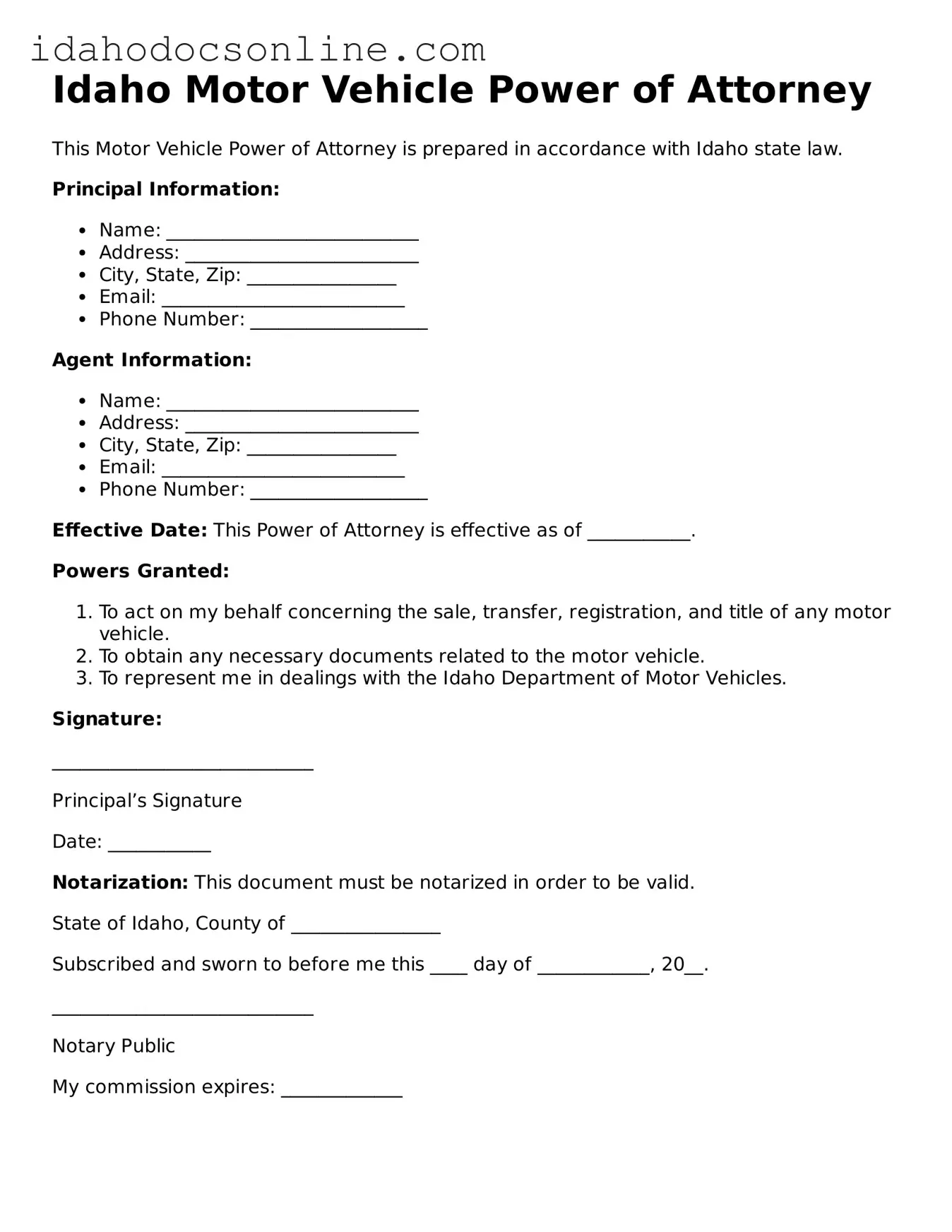Free Motor Vehicle Power of Attorney Form for Idaho
The Idaho Motor Vehicle Power of Attorney form is a legal document that allows an individual to designate another person to act on their behalf regarding motor vehicle transactions. This form is essential for managing vehicle-related matters, such as registration, title transfers, and other important decisions. If you need to empower someone to handle these tasks for you, consider filling out the form by clicking the button below.
Fill Out Your Document

Free Motor Vehicle Power of Attorney Form for Idaho
Fill Out Your Document
Need speed? Complete the form now
Complete Motor Vehicle Power of Attorney online — edit, save, download with ease.
Fill Out Your Document
or
Free PDF
